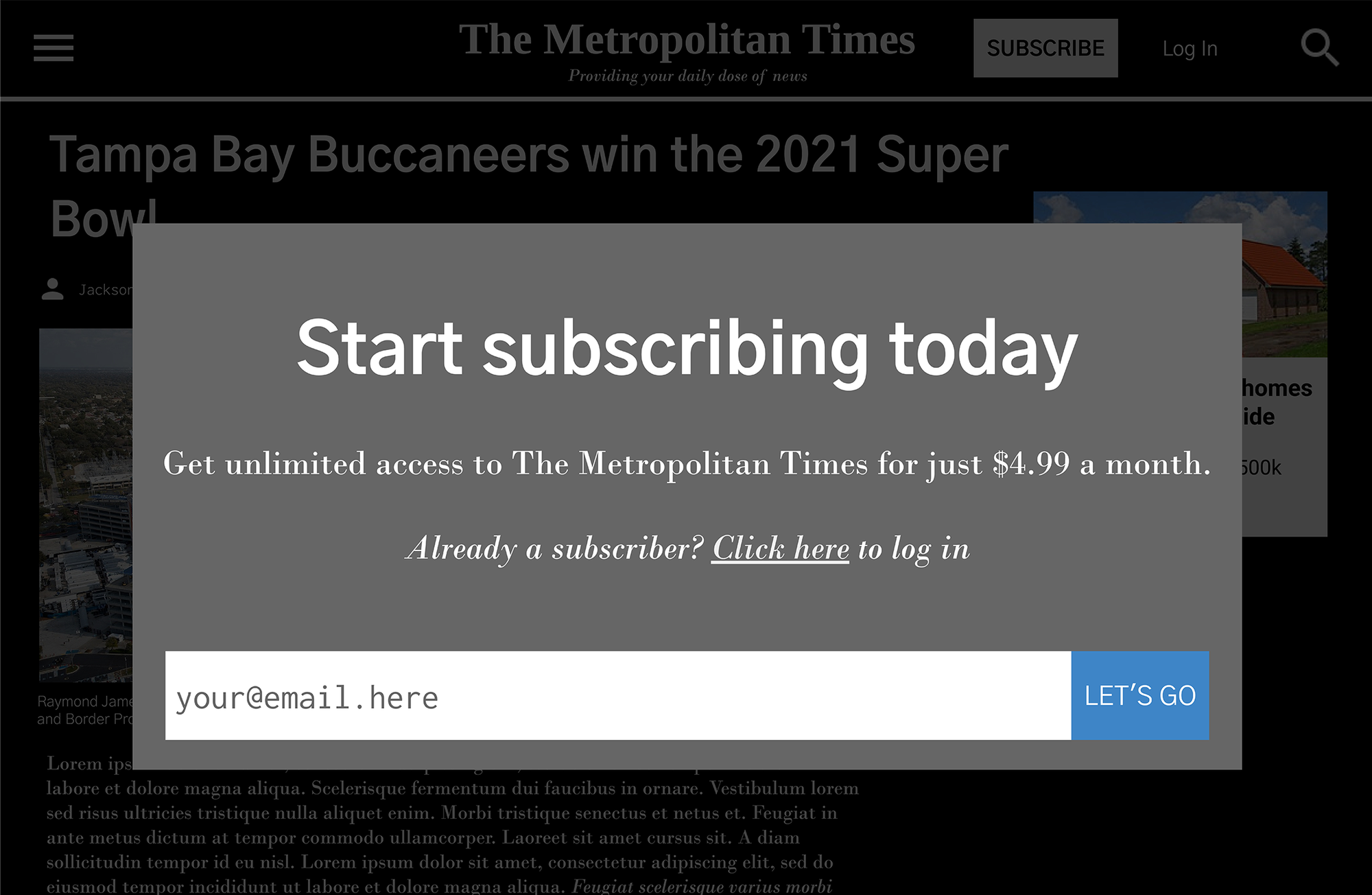Courtesy of Baron Maddock, CC BY 4.0
A few weeks ago, there was a controversial local hot-button issue posted in a social media group with a link to a news article. Opinions and accusations were all over the page in response to the post and speculation was rampant. The facts and the details of the news article were being questioned. It was a typical type of social media exchange that I try to avoid, with limited success (“never read the comments”). One of the commenters begged for someone to provide more detail or screenshots from the article because it was “behind a f$#*ing paywall and I can’t read it!”
When I see a complaint about a paywall, part of me wants to remind the complainer that quality journalism takes money to pay for reporters and infrastructure. I want to explain that community members who don’t support local newspapers with a subscription shouldn’t be complaining about a lack of access to that information. Too often I forget my privilege — that I can afford access to not only a local paper, but to as many periodicals as I want and more than I probably need.
I have always subscribed to my local newspaper no matter where I have lived, not only to keep myself informed of local issues, but because I have always believed in the importance of the press in a free and democratic society. I subscribed to the Tri-City Herald shortly after we moved to town over thirty years ago, the same week we arranged for our utilities, phone service, and opened a new local bank account. I’ve been a subscriber ever since.
In the early ‘90s, the Tri-City Herald was a daily newspaper, printed right here in Kennewick, with a circulation of over 45,000. The paper was faithfully delivered by local carriers to every customer’s doorstep before 6am each day. There were also newspaper stands all over town, and you could pick up a copy at grocery stores and gas stations. There were enough reporters to cover local politics and local events, and the paper really felt like part of the community. When family or friends were featured in the paper, copies were saved and shared. It seemed to me like everyone read the paper, whether they subscribed at home or read a copy at work. Newspapers were left behind at diners and coffee shops for the next customer. The topics covered in the paper were part of our daily conversation.
No one seemed to complain about an inability to access the news.
But the newspaper industry has changed significantly since then. According to a report by the Medill School of Journalism at Northwestern University, the U.S. has lost over one third of its newspapers and two thirds of its journalists since 2005.
The Tri-City Herald is still a valuable local news source, but it is not the same paper it was. It has changed ownership several times. It is a bit remarkable that the Herald has survived at all.
Years ago, the Herald sold their local press and contracted printing to another company out of town. In October 2023, the print version of the Herald transitioned to just two print editions a week, Wednesday and Sunday, delivered by the US Postal Service instead of a local carrier. Circulation is less than half what it was when I first subscribed, even though the population has more than tripled. The paper still publishes a daily digital edition, but readers must access the paper through a subscription paywall.
All this change is driven by the rapidly changing business model of the news industry. Subscriptions and print advertising no longer pay the bills. Consumers now expect to get their news online for free. Clicks that generate advertising dollars have resulted in click-bait headlines and junk articles competing for attention with little investment in quality journalism. Worse, this evolution of the information universe has made the spread of disinformation easy and widespread.
And when disinformation peddled on the web is freely accessible (and promoted by social media algorithms) while reliable news sources that adhere to rigorous journalistic standards are inaccessible behind a paywall, our democracy suffers. What good is a free press if the people’s access to the press is limited to those who can pay for it?
I recognize that media companies can’t produce the news without a source of revenue, and I understand why paywalls have evolved as part of the media business model. But I also know that the industry needs to recognize that paywalls undermine the ability of the press to support our democracy, and that they need to look for ways to make the news more accessible.
Tumbleweird is and always has been free to the reader. But Tumbleweird is a local monthly zine with a mission to provide an alternate voice to our local community. We depend on Patreon donors and grants from organizations like Inatai Foundation (thank you all!) along with a healthy bit of love labor to print 2500 copies a month that we distribute freely to our community and mail to our wonderful subscribers. And although we publish local news, we don’t have the resources to do the work of a local daily news organization that can inform the public and hold our elected officials accountable.
Tumbleweird is not a business model that would work for the Tri-City Herald. And for now, the Tri-City Herald needs a paywall to survive as a business.
But not every article has to be behind a paywall.
As Richard Strengel explained in his article “Democracy Dies Behind Paywalls” published this week in The Atlantic (ironically located behind a paywall, sorry), “The problem is not just that professionally produced news is behind a wall; the problem is that paywalls increase the proportion of free and easily available stories that are actually filled with misinformation and disinformation.”
During the pandemic, the Tri-City Herald followed the example of all major newspapers and published COVID information with free access. The same thing could be done for coverage of local government and the 2024 election.
It would be great if our social media interactions were more like those in-person water cooler conversations that shared a common set of facts, but that isn’t very likely to happen. The newspaper business will eventually adapt, but until then, we as voters must be discerning in the news media we consume. Individually, we can’t change the business model for journalism, but we can pay attention to what we read and what we spread.
For my colleagues at the Tri-City Herald, keep up the good work. And if you can find a way to make the news more accessible to non-subscribers, the community will be better served.
Ted Miller grew up around the world but now lives in Richland with his wife. He’s a runner, actor, singer, nuclear engineer, and graduate of the U.S. Naval Academy.
Ted believes that if more people worked toward love and understanding instead of giving in to fear and divisiveness, the world would be a better place.
justicepeacelove.com
justicepeacelove.substack.com


